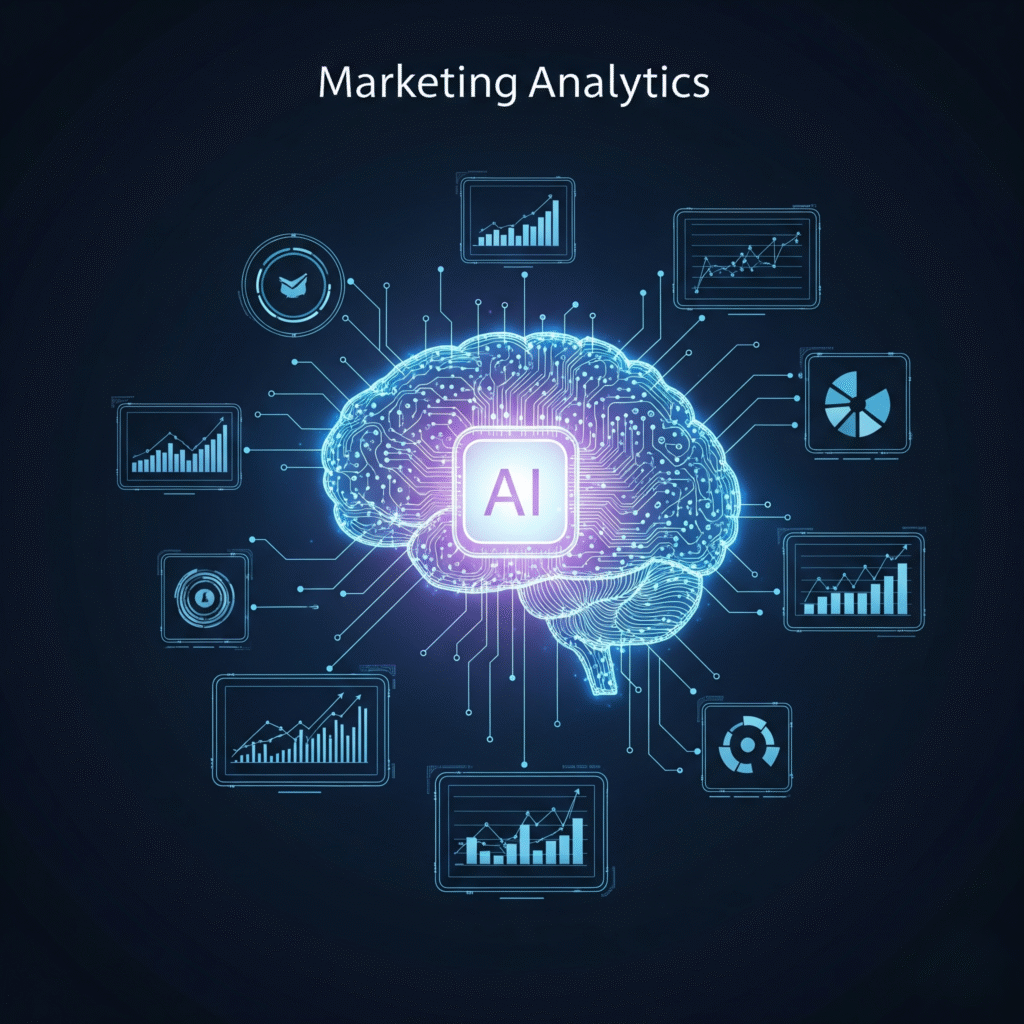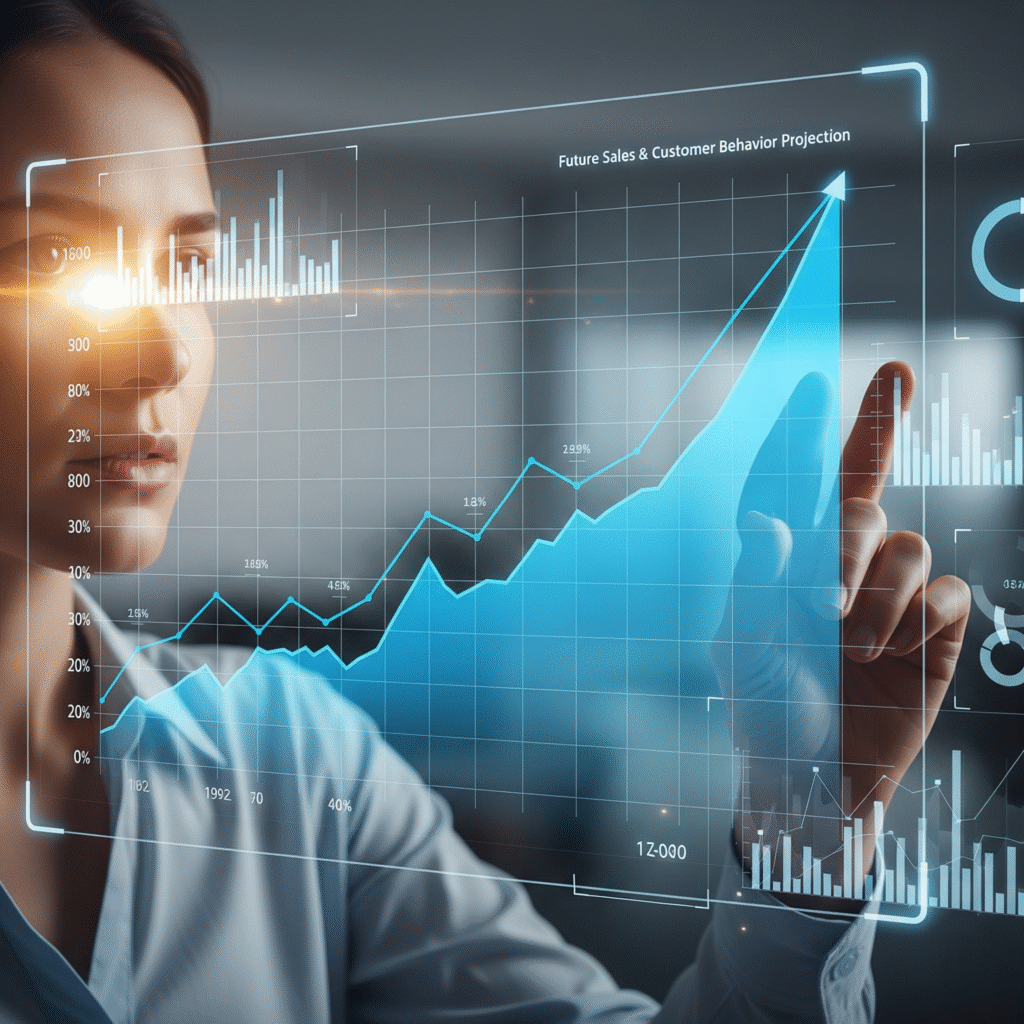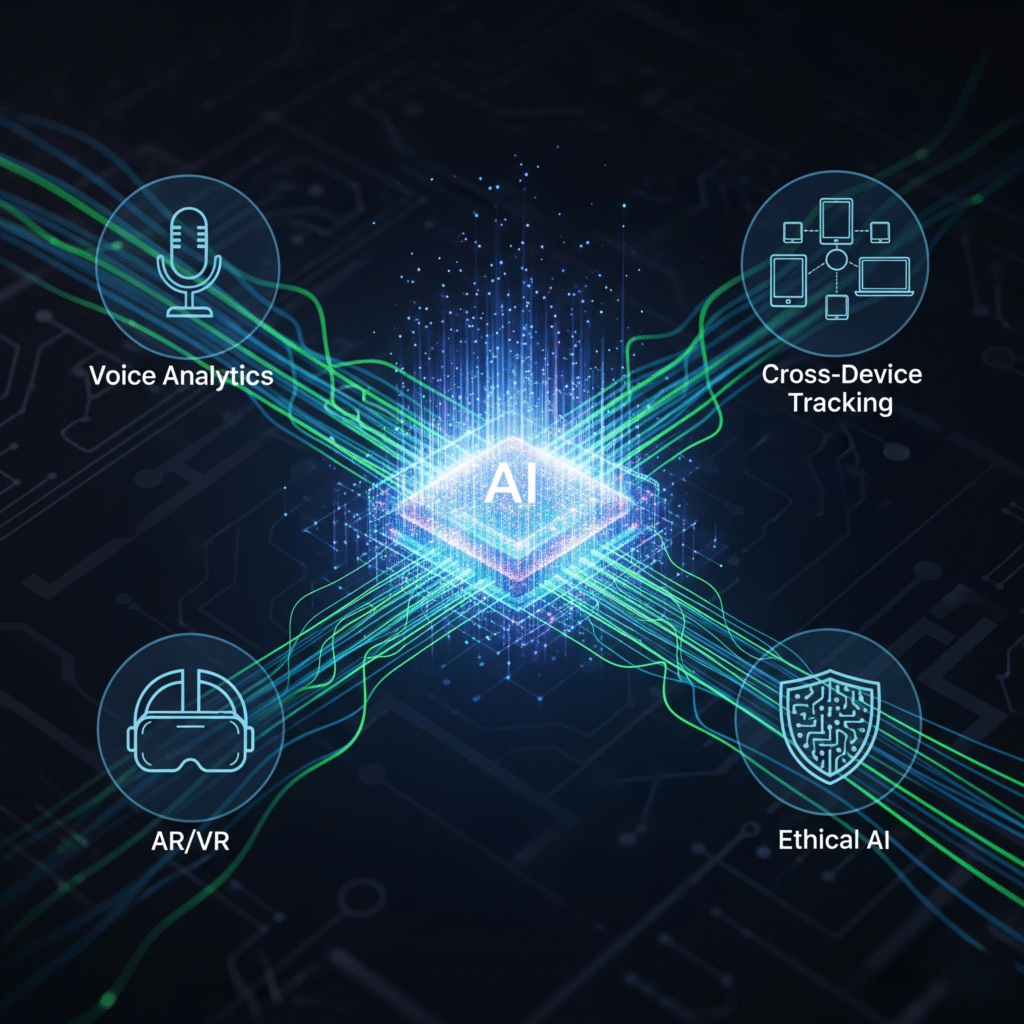AI-Powered Marketing Analytics: The Future of Data-Driven Decisions
AI-Powered Marketing Analytics
Introduction to AI in Marketing Analytics

AI-Powered Marketing Analytics
In today’s fast-paced digital landscape, data is the backbone of successful marketing. Businesses that rely on intuition alone often fall behind those that use insights derived from analytics. But as customer journeys become more complex and marketing channels expand, traditional analytics tools are no longer enough. This is where AI-powered marketing analytics comes into play.
Artificial Intelligence (AI) has revolutionized the way companies collect, interpret, and act on data. By using machine learning algorithms and predictive modeling, AI helps marketers uncover hidden patterns, anticipate customer needs, and make smarter, faster, and more profitable decisions. In 2025 and beyond, businesses that adopt AI-driven analytics will enjoy a significant competitive edge.
Why Data-Driven Decisions Matter More Than Ever
Marketing is no longer about running broad campaigns and hoping for results. Customers expect personalized, relevant, and timely interactions, and the only way to deliver that consistently is through data-driven decision-making.
Here’s why it matters:
- Hyper-competition: Every industry is saturated. Without analytics, it’s impossible to cut through the noise.
- Customer expectations: Personalization is not optional anymore. Data guides how businesses tailor messages.
- Resource optimization: With budgets under pressure, marketers must focus on ROI-driven strategies.
- Omnichannel complexity: Customers interact with brands across websites, apps, emails, and social media. Analytics ensures consistency across touchpoints.
Simply put, without strong analytics, even the most creative campaigns risk underperforming.
AI-Powered Marketing Analytics
How AI Enhances Marketing Analytics

AI-Powered Marketing Analytics
Unlike traditional analytics, which rely on manual reporting and static data, AI brings automation, prediction, and actionable insights. Here are the key enhancements:
- Predictive Analytics
AI forecasts customer behavior, such as churn risk, purchase probability, and lifetime value, allowing proactive marketing. - Real-Time Insights
Instead of waiting for reports, AI tools analyze live data streams, enabling instant campaign adjustments. - Natural Language Processing (NLP)
AI tools can process customer feedback, reviews, and social media conversations to uncover sentiment and intent. - Advanced Segmentation
Machine learning automatically segments audiences based on behavior, demographics, or engagement, making personalization seamless. - Campaign Optimization
AI recommends budget allocations, channel prioritization, and messaging adjustments to maximize ROI.
Key Benefits of AI-Powered Analytics for Businesses
Businesses that embrace AI in marketing analytics gain a wide range of advantages:
- ✅ Improved Customer Understanding – AI tracks patterns and preferences, enabling deeper insights into buyer behavior.
- ✅ Higher ROI on Campaigns – Real-time optimization ensures money is spent on strategies that actually work.
- ✅ Personalization at Scale – Deliver tailored messages to millions of customers without manual effort.
- ✅ Faster Decision-Making – AI processes vast data sets in seconds, empowering marketers to act quickly.
- ✅ Competitive Edge – Staying ahead of competitors by leveraging insights they might overlook.
For small and large businesses alike, these benefits translate into sustainable growth.
Real-World Use Cases in Marketing Campaigns
AI-powered analytics is not just theoretical—it’s already transforming how businesses approach marketing:
- Customer Journey Mapping
Brands like Amazon and Netflix use AI to track user behavior, predicting what content or product customers are most likely to engage with next. - Ad Campaign Optimization
Google and Meta’s ad platforms use AI to optimize bidding, targeting, and creative selection in real time. - Content Personalization
E-commerce sites dynamically change homepage banners, product recommendations, and discounts based on individual browsing patterns. - Email Marketing
AI tools like Mailchimp and HubSpot determine the best time to send emails, the subject lines most likely to get clicks, and even tailor offers per customer. - Social Media Listening
Tools powered by NLP analyze customer sentiments on platforms like Twitter, Facebook, and TikTok to guide reputation management and engagement strategies.
Challenges and Considerations When Using AI Analytics
While AI-driven analytics offers massive potential, businesses must also address key challenges:
- Data Privacy Concerns: With laws like GDPR and CCPA, handling customer data responsibly is non-negotiable.
- Implementation Costs: Small businesses may struggle with the upfront investment in AI platforms.
- Skill Gaps: Not every marketing team has data science expertise, making adoption challenging.
- Over-Reliance on Automation: While AI is powerful, human oversight is still essential for ethical and creative decision-making.
Companies must strike the right balance between automation and human judgment to maximize results.
Future of AI-Powered Marketing Analytics in 2025 & Beyond

AI-Powered Marketing Analytics
The future of marketing analytics lies in hyper-personalization and predictive intelligence. Here’s what we can expect in the coming years:
- Voice & Conversational Analytics – AI will analyze voice interactions from smart assistants and chatbots to uncover insights.
- Cross-Device Tracking – Understanding customer journeys across phones, laptops, wearables, and smart homes will become standard.
- AI + AR/VR Integration – Marketers will analyze engagement within immersive virtual environments.
- More Accessible AI Tools – Affordable AI-powered platforms will emerge for small and medium businesses.
- Ethical AI in Marketing – Transparency and ethical use of AI data will play a major role in building trust with customers.
By 2025 and beyond, AI will not just support decision-making—it will actively drive strategic marketing choices.
AI-Powered Marketing Analytics
Final Thoughts
AI-powered marketing analytics is no longer a futuristic concept—it’s today’s reality. Businesses that leverage AI to analyze customer data, optimize campaigns, and personalize experiences will remain ahead of the competition.
Whether you’re a small startup or a global brand, investing in AI-powered analytics tools will help you deliver smarter campaigns, maximize ROI, and future-proof your marketing strategies.
In the coming years, success in marketing won’t be about who has the most data, but about who uses AI most effectively to turn that data into action.
check our latest post👇
Top Marketing Automation Trends in 2025: How Businesses Can Stay Ahead

